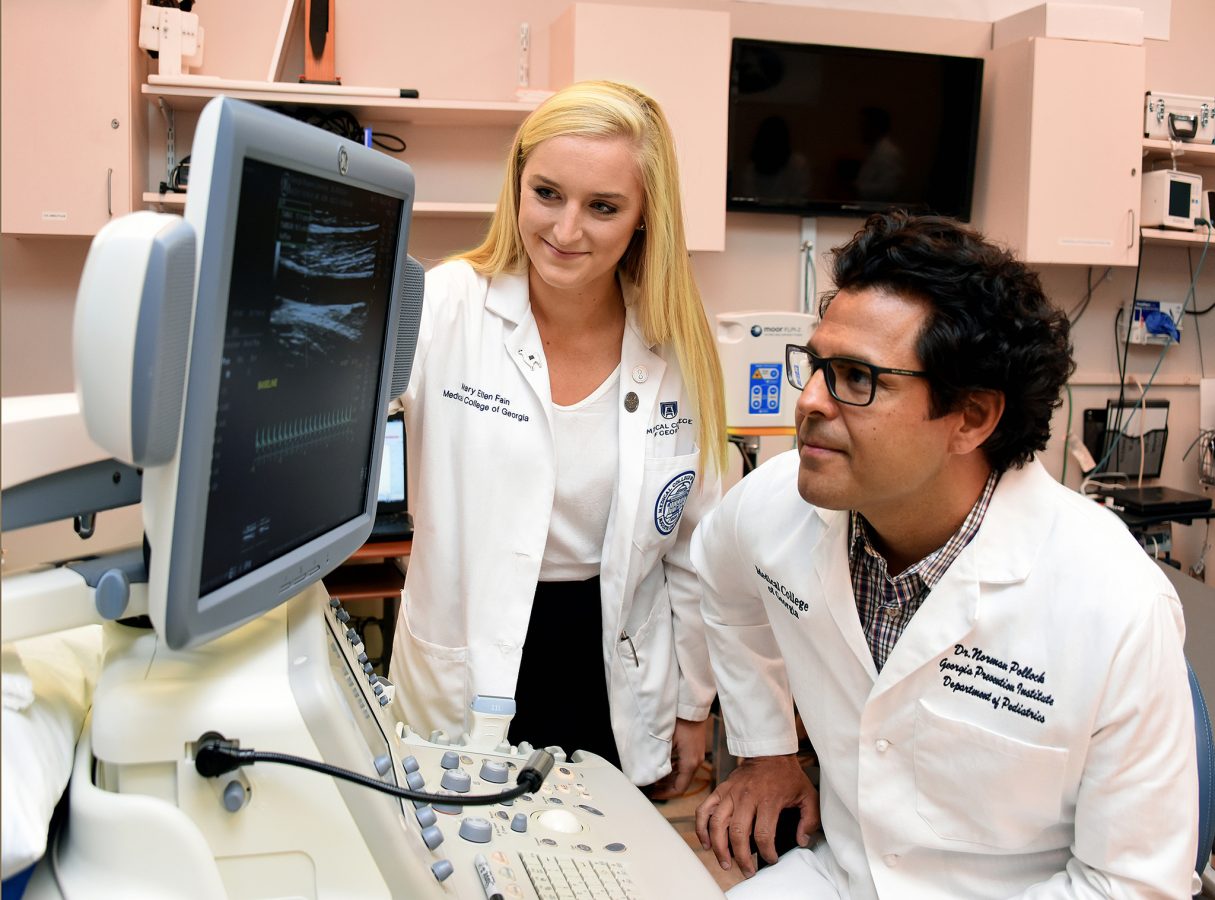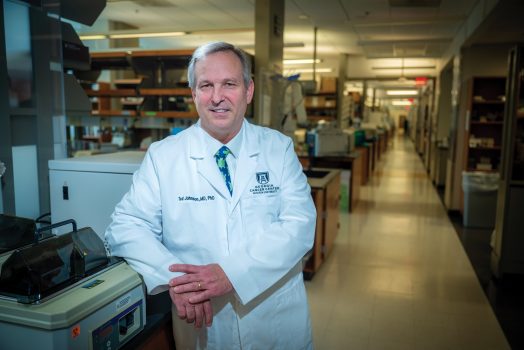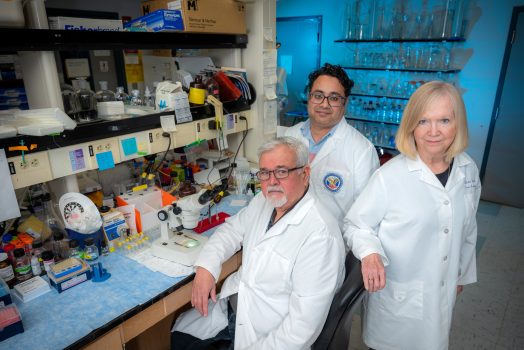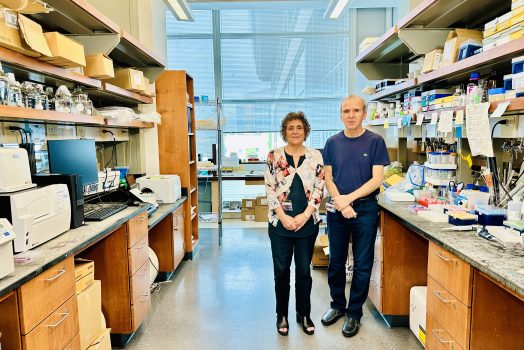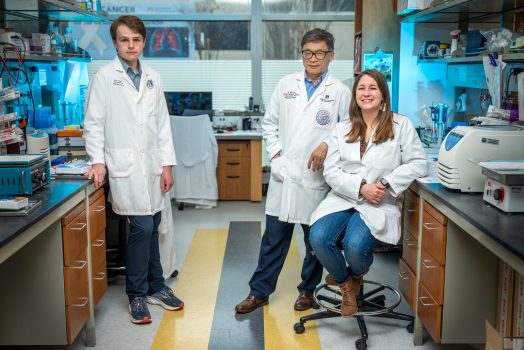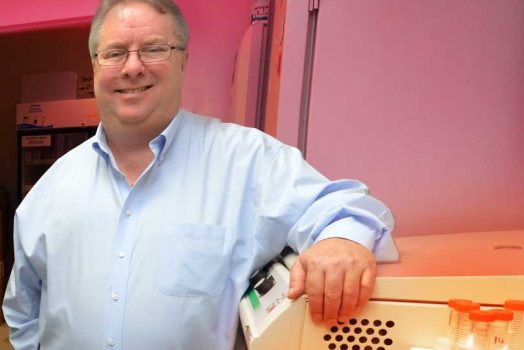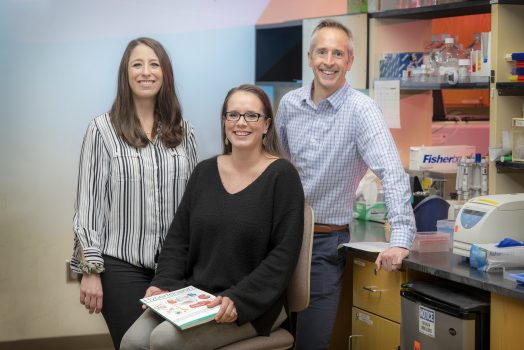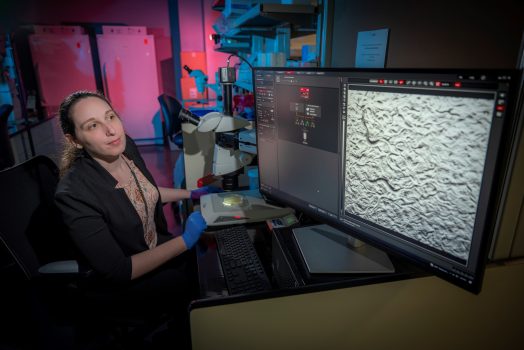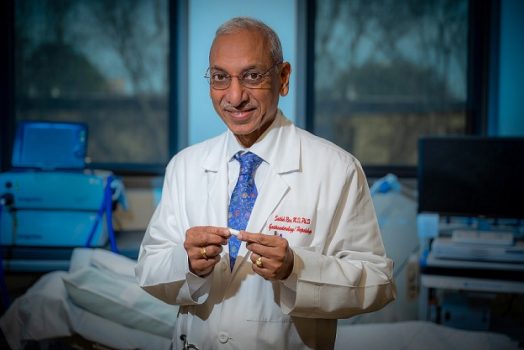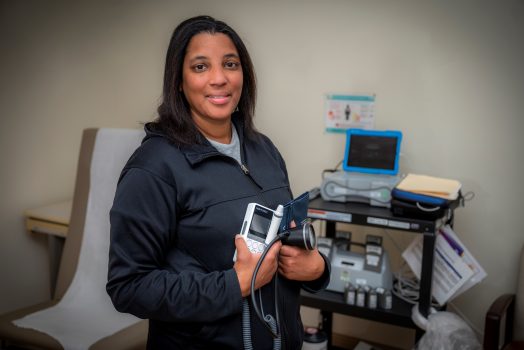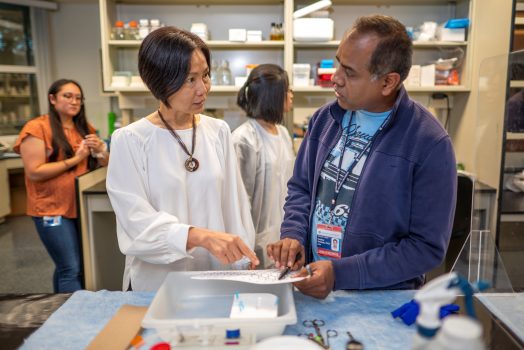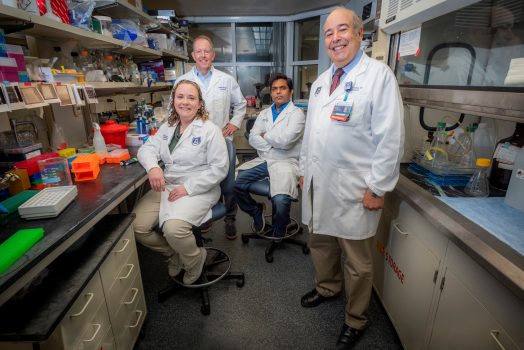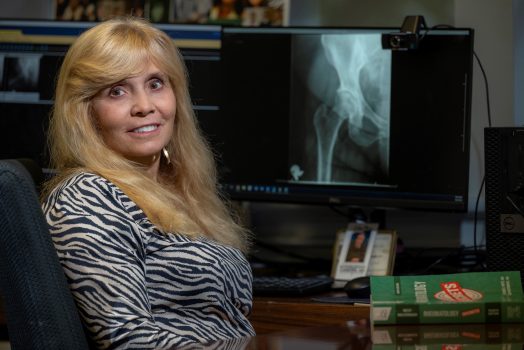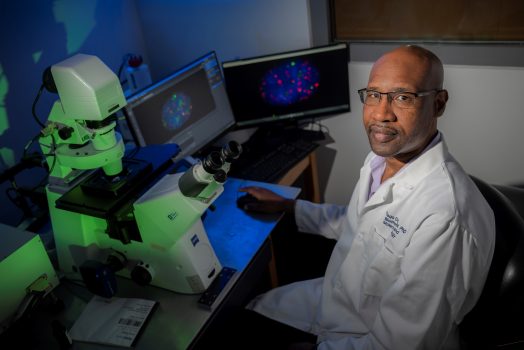The first in-human study of a new immunotherapy that blocks a natural enzyme that tumors commandeer for their protection was well tolerated by children with relapsed brain tumors...
With preterm birth, the still-immature retina can develop a potentially blinding eye disorder known as retinopathy of prematurity.
A new $2.3 million grant from the National Cancer Institute is giving the Georgia Cancer Center the opportunity to understand how those cancer cells resist primary treatment and...
The new IMMCG focuses on better understanding the immune system’s seemingly diametric roles in enabling good health and in contributing to major killers.
The discovery may help explain why sometimes promising immunotherapies designed to help the immune system kill cancer don’t.
The National Centers for Metabolic Phenotyping in Live Models of Obesity and Diabetes, or MPMOD, is a multicenter initiative being established by the National Institute of...
The study is the first to identify increased prevalence of disease-causing genetic variants in females with unexplained infertility.
The findings point toward a treatment target for a condition that does not have great treatment options.
Faculty at the Medical College of Georgia at Augusta University were recognized with Exemplary Teaching Awards for their contributions to students and residents at the state’s...
Scientists have evidence that a toxic protein aggregates in the neurons in the gut before it interferes with neurons in the brain.
A vibrating capsule designed to stir the colon to action appears to double the ability for adults struggling with debilitating chronic constipation to defecate more normally and...
The Department of Defense has awarded Avirup Guha, MBBS, with a $1.1 million budget over the course of four years for his study.
Physicians want to further explore the relationship between the two conditions to identify social determinants of health that may be a factor in nearly doubling the rates of PAD...
Scientists have evidence these POMC neurons become hyperactive after chronic exposure to stress, leading to things like depression. When their activity is reduced, so are...
This is the first study to try to standardize the way we need to investigate these structural changes in hematologic malignancies.
Scientists at the Medical College of Georgia say it’s time for another look at clonidine.
We need to get beyond the kind of simplistic idea that every sex difference involves hormone differences and hormone exposure, MCG scientists say.
The bone and muscle that keep us upright are in constant communication and their wellbeing tends to go hand in hand.
Calculator that weighs individual’s risk/benefit of taking common osteoporosis drugs being developed
Physicians could use this "calculator" to help an individual patient determine how best to proceed.
The aggressive brain cancer quickly becomes treatment-resistant and the average survival remains at about 15 months.
 Augusta University
Augusta University
